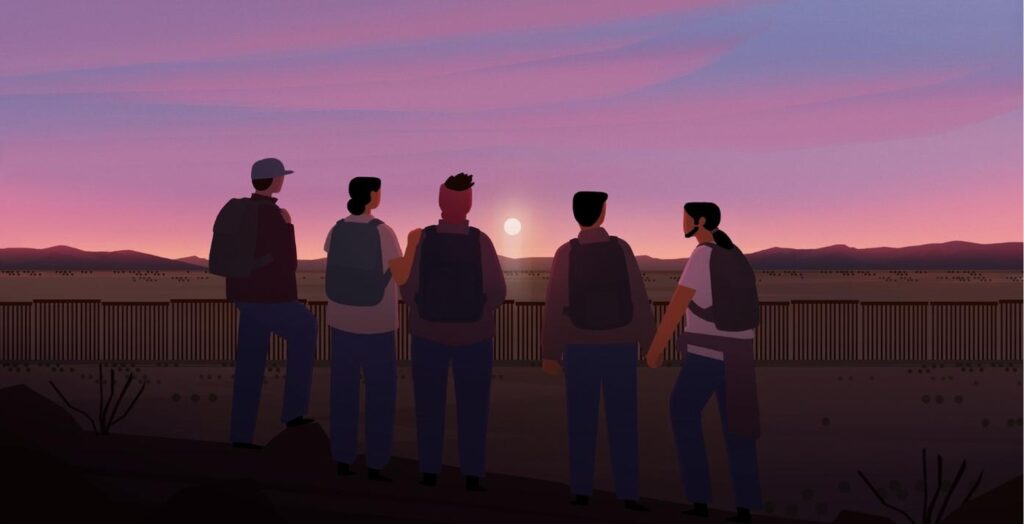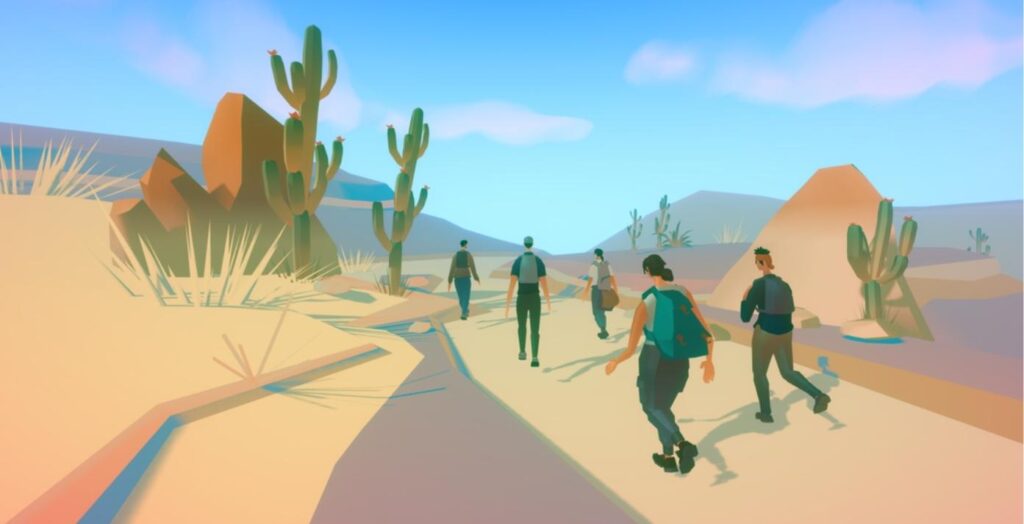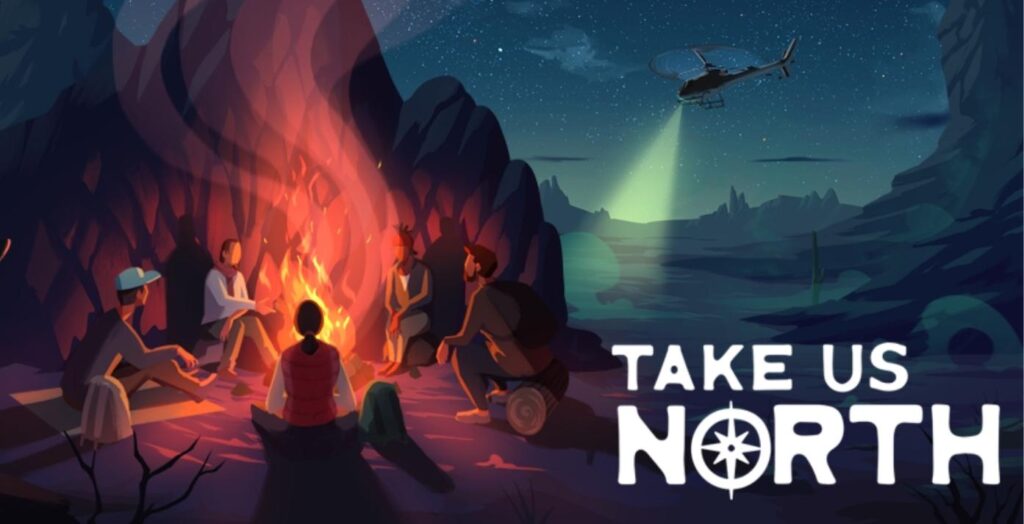At GDC 2025, there were plenty of games to admire and demos to marvel at—but none hit harder or felt more important than Take Us North. Developed by Anima Interactive, Take Us North is a narrative adventure survival game rooted in real-world stories of migrants and asylum seekers making the perilous journey across the U.S.–Mexico border. In the demo, players guide a group of travelers through the Sonoran Desert between Nogales, Mexico and Nogales, Arizona. The goal isn’t to conquer. It’s to survive. To endure. And most of all, to listen.
In a conversation with Karla Reyes, founder and creative director of Anima Interactive, it became clear how deeply personal this game is—not just for her, but for much of the development team. “My father immigrated from Guatemala,” Reyes told me. “He crossed the border this way, as did much of my family. That’s why I was particularly drawn to this topic, especially now when it’s more relevant than ever.”
The team’s commitment shows in every detail. Take Us North is informed by consultations with anthropologists, shelters in Nogales, and migrants who’ve made the journey themselves. The game avoids easy answers or political posturing. Instead, it offers a nuanced, human perspective. “We’re trying to challenge people’s perceptions about migration,” Reyes said. “It’s not just people from Mexico or Latin America. There are people from all over the world who travel through Mexico because they know it’s a port of entry.”
You play as a guía—a guide, sometimes called a “coyote.” But unlike most depictions in popular media, this game reframes the role. “There are good guides too,” Reyes said. “We wanted to show that nuance.” The protagonist is a woman, a choice grounded in research with migration scholars and PhD students studying gendered roles in border crossings.
Scholarship about La Frontera is vital, and Take Us North showcases that.

Mechanically, the game leans into survival-lite elements. Players manage food, water, stamina, and heat exposure, all within the context of a harsh and desolate desert. Inventory choices reflect more than just stats—Reyes noted that many migrants choose to carry spiritual items like prayer cards or rosaries over practical supplies. One moment in the demo features a shrine where players can interact with spirits that trigger real-life interview audio, grounding the experience in both gameplay and documentary realism.
As a journalist and first-time GDC attendee, this game hit me in a way few ever have. Coming from El Paso, with family across the southwest border, Take Us North didn’t just speak to me—it echoed. At shows of this size, it’s rare to see a game that reflects my community. This one doesn’t just reflect—it honors, with clarity and compassion.
There were small moments in the demo that stuck with me: a child dreaming of becoming a guide, the quiet ambiance of a makeshift dental office, and the subtle weight of walking through unforgiving terrain. Even the slow pace felt intentional. Some may liken it to Death Stranding, but this isn’t science fiction. These are real-world stories, and the game makes sure you feel their gravity. This isn’t about crossing a border—it’s about life and death, hope and desperation, survival and sacrifice.
Take Us North shows that migrant stories aren’t just about crossing the US border.

Reyes shared that she recently walked a migrant trail in Nogales and found artifacts migrants had left behind. “They’re still making that journey today,” she said. “Even with everything happening, they’re not stopping.” That truth is embedded in the game. And it lingers.
With backing from Xbox, Cinereach, and Clever Endeavour Games, Take Us North is aiming for a late 2026 or early 2027 release. A Kickstarter campaign is planned to launch soon. In the meantime, players can show their support by pre-registering—essentially the game’s version of wishlisting. Supporters will also be able to fund further development and receive handmade rewards like embroidered textiles and bracelets crafted by migrants in Nogales shelters.
Reyes and her team aren’t just telling a story—they’re creating a space where real voices can be heard. “We want to ensure we’re honoring the migrants’ stories,” she told me. “They tell the best stories. No one else can tell their story the way they can.”
This was easily one of the most meaningful things I experienced at GDC 2025. And I have Day of the Devs to thank for giving it a platform.
To learn more or support the project, visit the Take Us North Kickstarter page.







